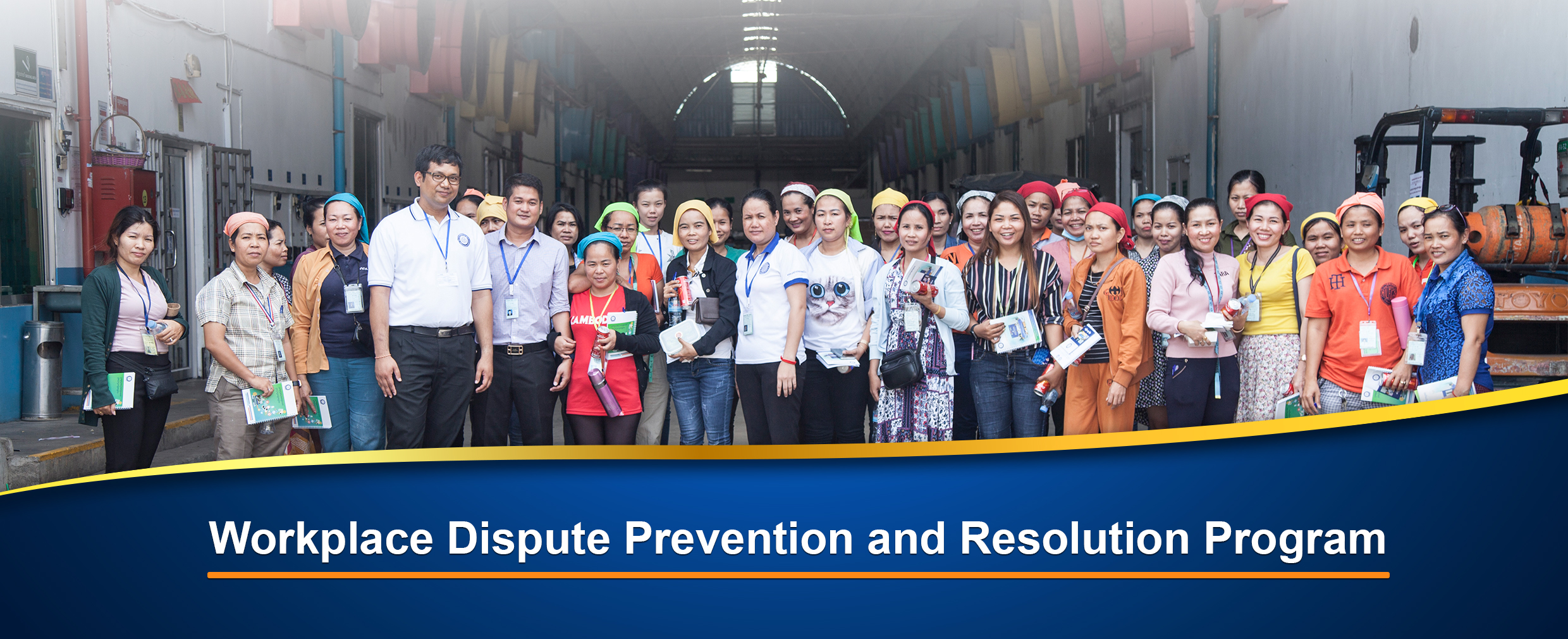
Labour disputes – which disrupt productivity and production – are best addressed and resolved at an early stage. The ACF has developed a training program which focuses on providing employers and workers with the skills necessary to establish and maintain harmonious labour relations by encouraging communication, prevention and resolution of workplace disputes on the work floor.
Who should attend
This program is designed for union leaders, human resources managers or supervisors, shop stewards and worker and employer representatives. The program consists of three modules – each with required attendance for 8 hours. The modules will be taught over three months, to allow participants time to practice their learning.
Upon completion of the training course, trainees will be given a certificate of participation issued by the ACF. Trainees must attend all three topics in order to receive the certificate of participation.
Trainer:
Trainings will be conducted by arbitrators and senior ACF staff with expertise in industrial relations in Cambodia. Training will be provided in Khmer.
Learning outcome:
- Understand the benefits of a healthy employment relationship
- Understand responsibilities for maintaining and building employment relationships and identify obstacles and techniques to maintaining relationships
- Understand both internal and external dispute resolution mechanisms: characteristics of effective internal mechanisms and the different tiers of national dispute resolution
- Understand the components of an effective workplace grievance system
- Understand the different communication styles for negotiation and their benefits
- Develop skills and strategies for effective negotiation
- Develop skills to effectively listen, speak and prepare for negotiation
Training Modules:
- Building employment relationship
- who are the key players in employment relationships?
- How can individuals maintain and develop employment relationships?
- What are the responsibilities of employers and employees?
- Workplace Cooperation Mechanism
- What are the different forms of workplace cooperation mechanisms?
- What are the characteristics of effective mechanisms?
- What external (national) dispute mechanisms are available?
- Communication for negotiation
- What are the different styles of communication? What are the pros and cons of each style?
- How can you prepare for negotiation at work?
- How can you become a more effective speaker and listener?
